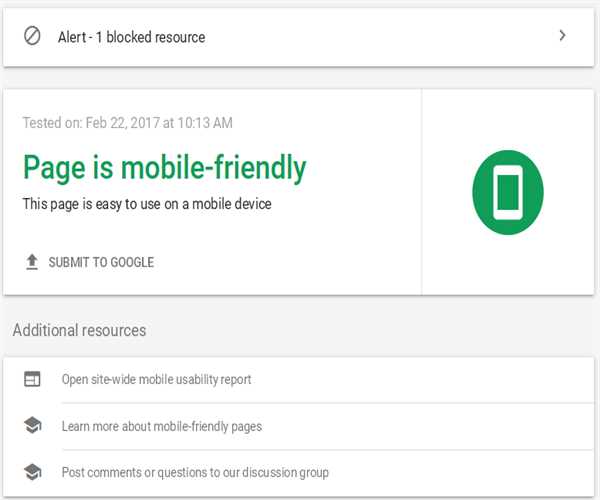
09-Aug-2023 , Updated on 8/9/2023 9:20:05 PM
SEO for bloggers- Techniques to increase traffic and engagement
Highlights
- Keyword Research- Start by conducting keyword research to identify relevant and highly searched keywords that align, with the content of your blog.
- Deliver Valuable Content- Craft informative and captivating content that connects with your target audience and addresses their specific needs and interests.
- Optimize On Page SEO Elements- Incorporate your target keywords naturally into titles, headings, meta descriptions and throughout your content to enhance visibility on search engines.
- Mobile Friendly Design- Ensure that your blog is mobile friendly and responsive since search engines prioritize websites that are optimized for devices in their rankings.
- Enhance Page Loading Speed- Streamline the loading speed of your blog to provide an user experience while also boosting search engine rankings.
- Establish Quality Backlinks- Secure high quality backlinks from websites to boost the authority of your blog and improve its search engine rankings.
- Implement Internal Linking Strategically- Integrate links, within your blog posts to help visitors navigate content easily. This not enhances the structure of your site but also improves SEO.
In today's era blogging has become a platform, for sharing ideas, knowledge and expertise. With the abundance of blogs available online the competition to gain visibility and connect with an audience has intensified. Search Engine Optimization (SEO) plays a role in assisting bloggers in driving traffic to their websites achieving better rankings in search engine results and cultivating a devoted readership. Let's delve into SEO techniques that bloggers can employ to increase website traffic and enhance engagement on their blogs.
Grasping the Significance of SEO for Bloggers
SEO encompasses a range of strategies and practices aimed at enhancing a website visibility and rankings on search engine results pages (SERPs). Search engines like Google utilize algorithms to assess the relevance and authority of web pages thereby influencing their position in search results. By optimizing their blogs for SEO purposes bloggers can heighten the probability of attracting traffic from search engines. This enables them to reach an audience and expand the reach of their blog.
Keyword Research and Targeting
Conducting keyword research is fundamental, to any SEO strategy. Bloggers must identify keywords. Phrases that align with their content while considering what their target audience is likely to use when seeking information online.
There are tools such, as Google Keyword Planner and SEMrush that can assist bloggers in finding popular keywords with low competition to include in their content.
After identifying the target keywords bloggers should strategically incorporate them into the titles, headings and overall content of their blog posts. However it's important to maintain a flow of language and avoid use of keywords. Search engines penalize websites that engage in keyword stuffing.
Creating quality and engaging content is essential for a blog. When bloggers consistently produce insightful posts they are more likely to attract and retain readers. This results in increased traffic and user engagement.
Search engines prioritize content that demonstrates experience, expertise, authority and trustworthiness (E A T). Bloggers should aim to become subject matter experts by showcasing credibility through researched articles with information. Additionally incorporating multimedia elements like images, infographics or videos can make the content more visually appealing and shareable.
Optimizing on page elements is crucial, for improving a blogs SEO performance.
Bloggers should take note of the following elements, on their webpages-
1. Title Tags and Meta Descriptions
These are HTML elements that provide descriptions of the content on a webpage.
- They appear in search engine results.
- Can influence whether users click through to your blog.
- Including keywords in these elements can improve your search ranking.
2. URL Structure
Having a clean and descriptive URL structure is important for both search engines and users to understand the content of your page. Create URLs that include keywords and clearly indicate the topic of your blog post.

Image Source- DEV Community3. Heading Tags
Heading tags (H1, H2, H3, etc.) are used to organize content. Including target keywords in heading tags helps search engines understand the topics of your blog post contributing to overall SEO.
4. Internal Linking
Internal linking involves linking to pages within your own blog. This practice helps search engines effectively crawl and index your content improves user experience and encourages readers to explore articles on your blog.
5. Mobile Friendly and Responsive Design
As mobile devices become increasingly popular for internet access it is crucial to have a mobile responsive design, for your blog.
Google and other search engines prioritize websites that are optimized for devices, in their rankings. Bloggers can use Google's Mobile-Friendly Test to check if their blogs are mobile friendly and make any improvements.

Image Source- Stack OverflowOptimizing site speed is crucial because users tend to leave websites that load slowly. Bloggers should make their blogs faster by compressing images utilizing browser caching and using content delivery networks (CDNs) to deliver content to users worldwide.
Having a secure HTTPS connection is important for establishing trust with both users and search engines. Google gives preference to secure websites in search results so implementing HTTPS is essential for bloggers.
Social media platforms offer opportunities for bloggers to promote their content and interact with their audience. By sharing blog posts on platforms like Facebook, Twitter, Instagram and LinkedIn bloggers can drive traffic to their blogs.
Creating content, with captivating headlines and compelling visuals increases the likelihood of users sharing the content with others thereby expanding the reach of the blog.Collaborating with bloggers or industry influencers through guest blogging or joint content projects can be mutually beneficial.By sharing content, on respected blogs bloggers have the opportunity to attract new readers from diverse audiences improve their SEO through a stronger backlink profile and establish themselves as authoritative figures in their specific field.
Monitoring and Analyzing Performance
To gauge the effectiveness of their SEO efforts bloggers should regularly. Analyze the performance of their blogs. Utilizing tools such as Google Analytics provides insights into website traffic, user behavior and the sources of visitors. By examining these metrics bloggers can identify areas that require improvement and refine their SEO strategies accordingly.
Building Backlinks
Backlinks, which are links from websites directed towards a blog hold significance in determining its credibility and authority. However not all backlinks are created equal; quality and relevance are factors. Bloggers should concentrate on earning backlinks from sources within their industry or niche that align with their content. This can be accomplished by creating content that naturally attracts others to link to it collaborating with fellow bloggers, for mutual benefit and actively participating in industry discussions and forums.
Regular Content Updates
Search engines prefer updated content since it signifies that the information provided is current and relevant. Therefore bloggers should periodically review their posts to incorporate information, statistics or insights into them.
Not does this help keep the content relevant. It also sends a signal to search engines that the blog is actively maintained and deserves a higher ranking.
User Experience and Engagement
A positive user experience is crucial, for both SEO and keeping readers engaged. Bloggers should ensure that their websites are easy to navigate visually appealing and optimized for devices. Encouraging user engagement through comments, social sharing and subscriptions also tells search engines that the content is valuable and worth promoting.
Avoiding Unethical SEO Practices
While its important to use SEO strategies to boost blog traffic and engagement bloggers must steer clear of practices known as black hat SEO techniques. These tactics, such as keyword usage, purchasing backlinks or disguising content can result in penalties from search engines. This can severely harm a blogs reputation and ranking.
Final words- SEO plays a role in the success of every blogger. By understanding and implementing SEO techniques bloggers can increase their blogs visibility attract traffic and engage with their target audience.
Combining high quality content with on page optimization, mobile friendliness and strategic promotion allows bloggers to establish themselves as figures, in their niches while enjoying the benefits of a thriving and successful blog.
Keep in mind that search engine optimization (SEO) requires effort and its crucial to stay informed, about the trends and algorithm updates to achieve long term success in the ever changing landscape of blogging.

SEO and Content Writer
I am Drishan vig. I used to write blogs, articles, and stories in a way that entices the audience. I assure you that consistency, style, and tone must be met while writing the content. Working with the clients like bfc, varthana, ITC hotels, indusind, mumpa, mollydolly etc. has made me realized that writing content is not enough but doing seo is the first thing for it.
Join Our Newsletter
Subscribe to our newsletter to receive emails about new views posts, releases and updates.
Copyright 2010 - 2026 MindStick Software Pvt. Ltd. All Rights Reserved Privacy Policy | Terms & Conditions | Cookie Policy